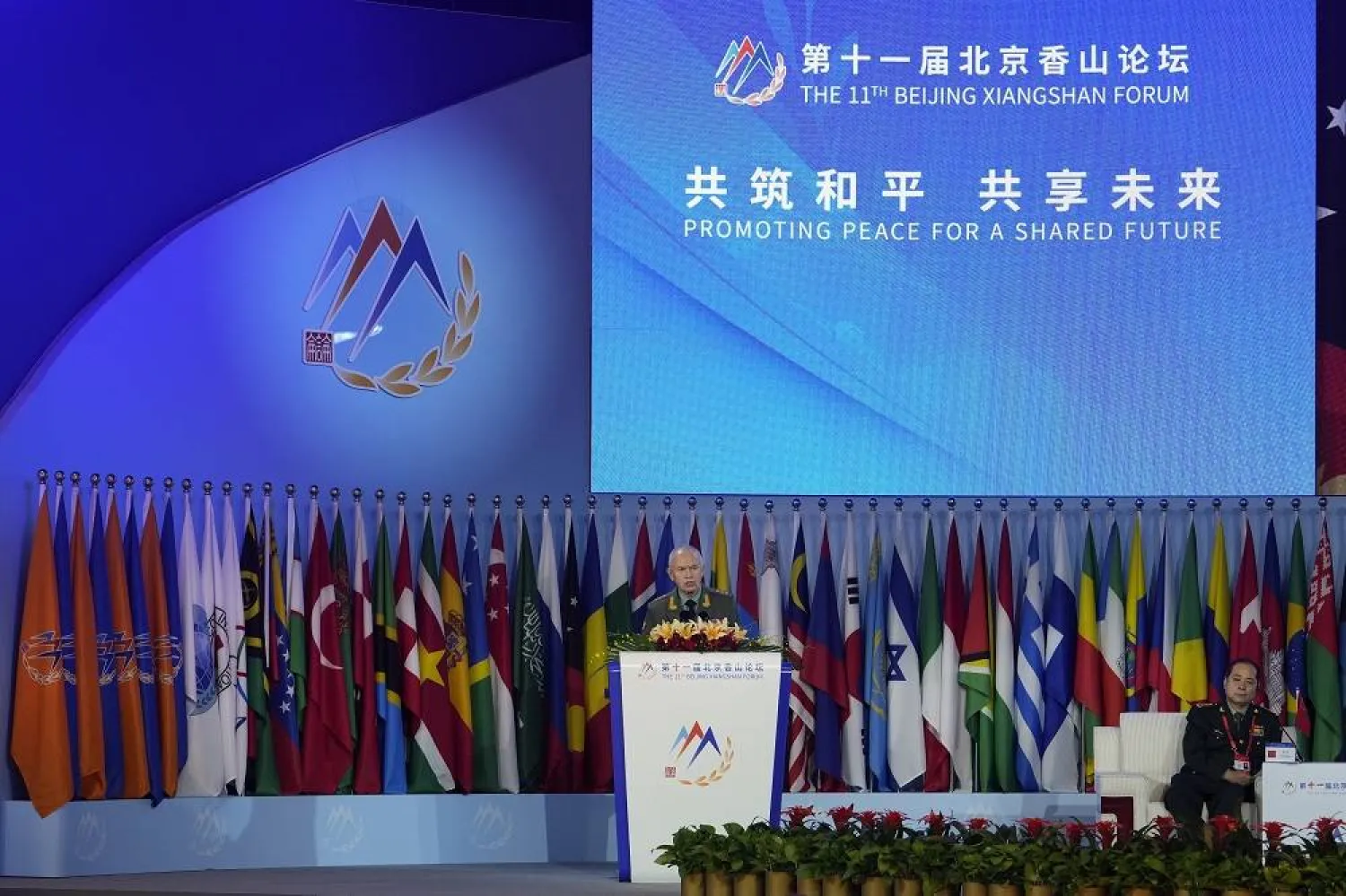Chinese and Russian defense officials on Friday took swipes at the West at a military diplomacy forum in Beijing, with China pitching to the Global South and Russia saying the United States was shifting military conflicts to the Asia-Pacific.
In a wide-ranging speech to the annual Xiangshan Forum, China's defense minister, Dong Jun, said China would enhance military ties with its neighbors and with developing countries in particular.
"Major countries must take the lead in safeguarding global security, abandon a zero-sum mindset and refrain from bullying the small and the weak," Dong said, in a veiled criticism of the United States, which he did not name.
In a "multipolar" world, "no one can afford to be an outsider or onlooker", he added. "Countries, no matter big or small, developed or developing, should have an equal right to participate in international affairs and voice their needs, and uphold their legitimate rights and interests," Dong said.
Dong's remarks come as communications ease between the US and Chinese militaries despite roiling tensions over the South China Sea, Taiwan and Washington's concerns at Beijing's close relationship with Russia amid its 30-month-old invasion of Ukraine.
Dong made his remarks to representatives from 90 countries and international organizations at the tightly choreographed three-day forum, which ends on Saturday. He said that to solve regional tensions, regional countries should "seek strength through unity and rely on themselves for their own peace".
"We should put down arrogance and prejudice, never interfere in other countries' internal affairs, never violate other countries' rights and interests," Dong said.
Russian deputy defense minister Alexander Fomin was more explicit, saying in his speech that the United States was trying to contain China and Russia while preparing for war in Asia by creating new security blocs.
"Russia and China support the creation of a just, multipolar world order based on equality and mutual respect," he said.
"In order to create conditions to force Russia into negotiations based on Kyiv’s formulas, NATO countries plan to send troops to Ukraine," he added. "This is a dangerous game which can lead to a direct conflict of nuclear powers."
NATO has said repeatedly it has no plans to send troops to Ukraine.
Fomin’s rhetoric contrasted with Dong's vision of Beijing as a responsible international crisis mediator.
China is eager to promote itself as a responsible player in global conflicts, despite being entangled in long-simmering territorial spats in East Asia. This year's forum is themed "Promoting Peace for a Shared Future".
Some diplomats and analysts are watching closely for signs of further progress in the military relationship between the US and China on the fringes of the conference.
The US is represented by Michael Chase, deputy assistant secretary of defense for China, Taiwan and Mongolia.
Chase will head a US delegation for talks with Chinese military counterparts after the forum - building on defense coordination talks in Hawaii that resumed in January for the first time since September 2021, the Pentagon said.
Although some regional states have sent defense ministers to the forum, Western countries generally send lower-level delegations, preferring the long-standing annual Shangri-La Dialogue in Singapore to discuss key security issues.
The forum comes after US National Security Adviser Jake Sullivan met Zhang Youxia, the vice-chairman of the China's commanding Central Military Commission, in Beijing last month and US and Chinese theater-level commanders this week held their first-ever conference call.
On the forum sidelines, former senior Pentagon official for China Chad Sbragia said US participation in the event showed Washington was committed to engagement.
"It shows, I think, symbolically to China, to the United States and certainly to allies and partners globally that the United States is committed to listening, to participating, to joining in and not being afraid to talk," Sbragia said.
Dong is responsible for China's military diplomacy but is not part of the Central Military Commission, China's core command body.
An admiral in China's navy, he was appointed in December after an anti-corruption purge in the army's top ranks.









